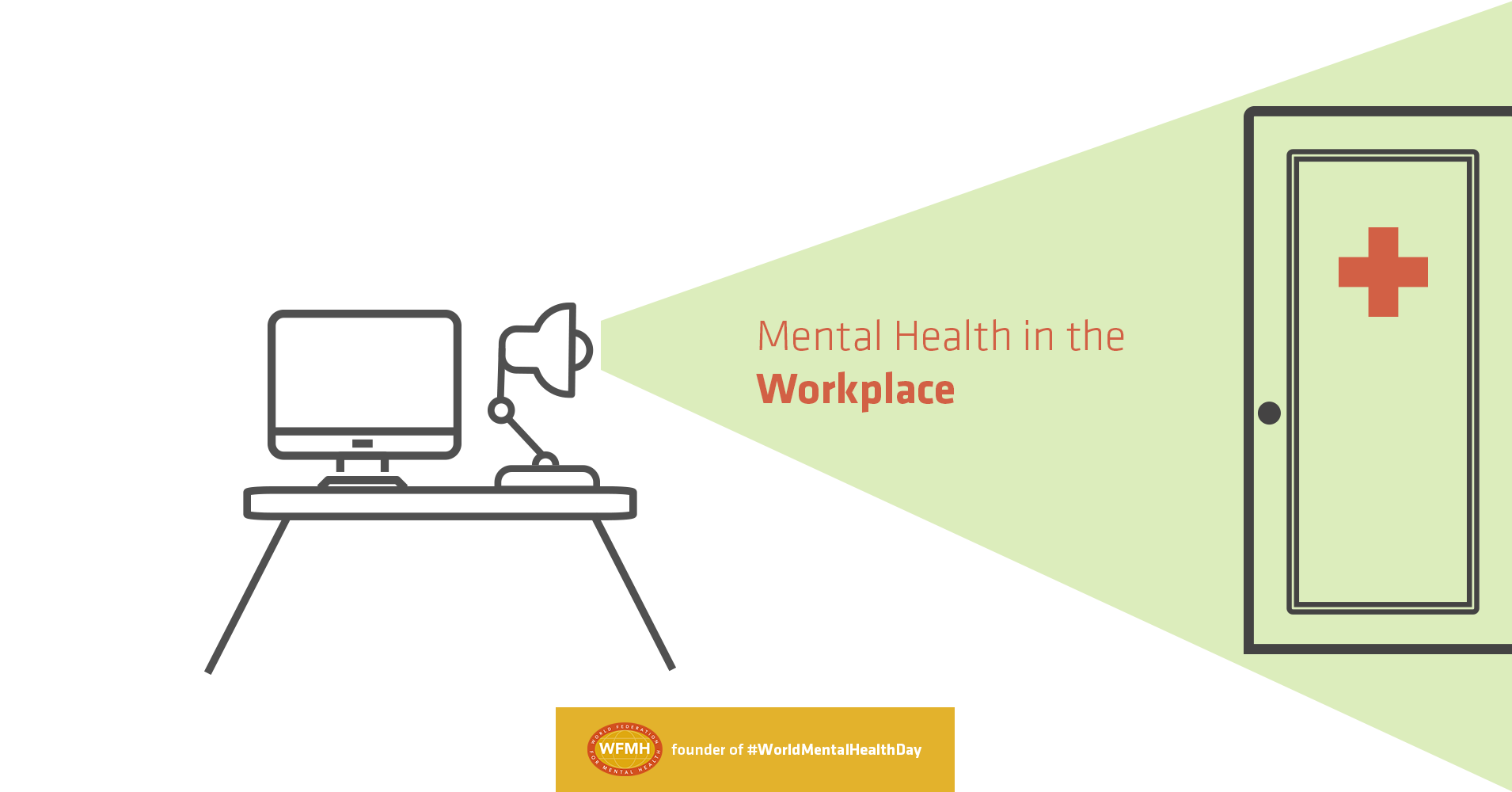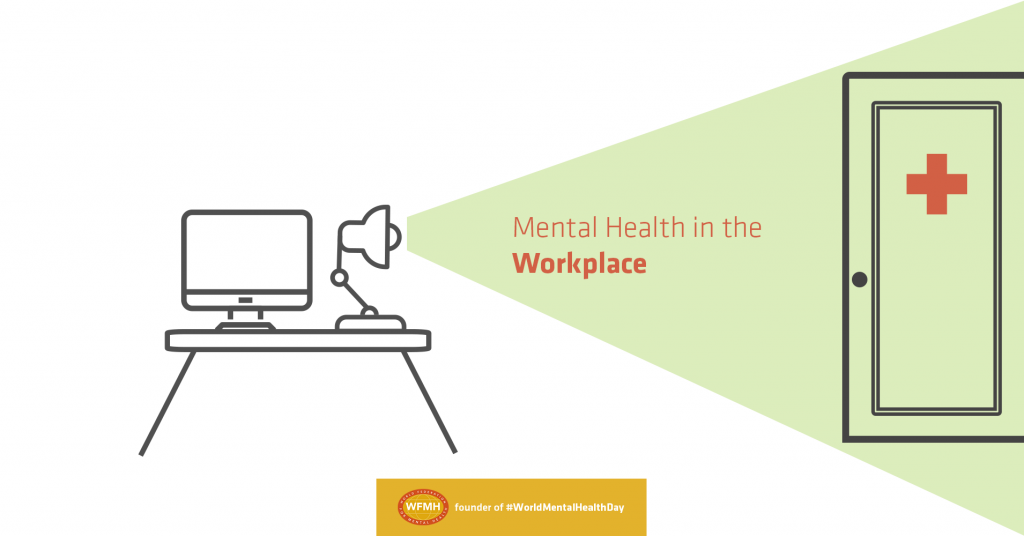
The health and well-being of Australian health professionals – by Kay Dunkely
October is Mental Health Month and it is important for all health professionals to focus on their own mental health to ensure they are in a good position to look after others. Two sayings that come to mind are “put on your own oxygen mask first so that you can help others” and “you can’t pour from an empty glass”. Mental health is a continuum and we all sit someone along the line between mental health and mental illness. To keep ourselves closer to the healthy end of the spectrum we need to pay attention to our own needs.
Generally the health professions are considered a more stressful career path and we spend a lot of time working under pressure to assist those who are unwell. Patients are not always appreciative of what we do and can be challenging to deal with. We may be on the receiving end of someone’s frustrations with inflexible systems and their anxiety about their own health or the health of a loved one. In addition in the health industry mistakes can cause injury or death and so we need to be accurate and pay attention to details. There is also a need to ensure we are up-to-date and undertake professional development, health professionals never stop learning. The health industry is also heavily regulated and there are a plethora of legal and ethical issues to consider on a daily basis. For these reasons taking time to invest in our own well-being is important to ensure that we can deal with the many stresses of our career and our workplaces.
A particular focus for maintaining good mental health is work-life balance. This is different for each individual and we should avoid comparing ourselves to others. We each need to find our own balance and avoid pressure to deviate from this. Working hard for short periods can be enjoyable but if you are no longer enjoying long hours and demanding schedules and you find your work is interfering with your own well-being or your ability to maintain personal relationships then it is time to slow down. However for some work is life and they may choose a lifestyle which focuses on their work. However it is good practice for everyone to have some regular work free days for rest and recreation. Often problems may be solved outside the work environment or ideas for a new approach may come from left field when you step away from work. Doing the same thing day in and day out can stifle a creative approach. It is good to be open to ideas from other industries and from interactions with people outside our usual circle. Remember that even as a professional you work to live and you do not live to work. You will never regret spending time doing things you enjoy but you may regret missing out on life if you work too much.
 The work of a health professional is demanding and you need to maintain your concentration during your work day. To maintain concentration you need to take rest and toilet breaks during your work day and ensure you have some nutritious snacks and plenty of water. All health professionals need to monitor themselves for lapses in concentration and take steps to remedy this. Avoid over doing caffeine intake or relying on sugary foods for energy; a piece of fruit, some fresh air and a brisk walk around the block may be enough to put you back on track. Likewise a conversation with a colleague during a break may provide an insight you had not thought of.
The work of a health professional is demanding and you need to maintain your concentration during your work day. To maintain concentration you need to take rest and toilet breaks during your work day and ensure you have some nutritious snacks and plenty of water. All health professionals need to monitor themselves for lapses in concentration and take steps to remedy this. Avoid over doing caffeine intake or relying on sugary foods for energy; a piece of fruit, some fresh air and a brisk walk around the block may be enough to put you back on track. Likewise a conversation with a colleague during a break may provide an insight you had not thought of.
As health professionals we often have to undertake professional development activities outside work and this takes time so ensure that your work roster allows time for this type of activity as well. Keeping fit through exercise is important and being on your feet all day is not the same as exercise such as walking, swimming, jogging, gym workouts etc. If you work in a seated role make sure you get up, move about and stretch regularly throughout your day. While the jury is out on standing desks it is certainly not good to be stationary, looking at a computer monitor for hours at a time so ensure you vary your activities as much as possible and do some upper back and arm stretches on a regular basis.
The other important activity in life is maintaining personal relationships with family and friends outside work and not just through social media. For optimum mental health spending time with family and friends is important. Social interaction is known to be good for mental health as is having a pet -provided you have time to commit to caring for a pet. Pets are great listeners when you need to debrief, they can be an excuse for a walk in the park before and after work and spending time with them playing or stroking their fur is a great way to relax.
As a health professional it can be hard to ask for help. This is both during the work day when things have not gone to plan or if you are struggling in other ways in your life. Health professionals are usually high achievers, we push ourselves very hard to achieve and have high expectations of ourselves. This tendency towards perfectionism can stop us asking for help even in simple things such as asking a patient to wait for a few minutes so that we can take a short break or asking a colleague to cover us while we eat our lunch. It can be even more difficult for health professionals to seek help on more significant matters such as our own health. Every health professional needs to have a General Practitioner and see them regularly for check-us and vaccinations. Do not be tempted to self-diagnose or self-manage a medical condition, even if you know what it is. We can never be objective about our own health and it is very easy to either trivialize a medical condition or become overly anxious about a minor symptom. This includes mental health symptoms. If you are finding life stressful or are struggling with routines that were previously easy seek help early. Do not feel embarrassed or ashamed to participate in counselling or have medication prescribed if you need it. You are human just like your patients. Early intervention will have a far better outcome than waiting for a crisis. Remember you have a responsibility to care for yourself so that you are competent to care for others.
Working as a health professional is a very rewarding and satisfying career. It brings tears and laughter. You can feel proud that you are making a difference to the lives of others. To do your best for those you serve in this role make sure that you also look after yourself.
Kay Dunkley holds a Bachelor of Pharmacy, Graduate Diploma of Hospital Pharmacy and a Graduate Diploma of Health Policy and Health Administration. She has been involved with the Pharmacists’ Support Service, a free service for pharmacists by pharmacists for over a decade, and has an interest in the mental health of health practitioners.
Images – courtesy World Federation for Mental Health
